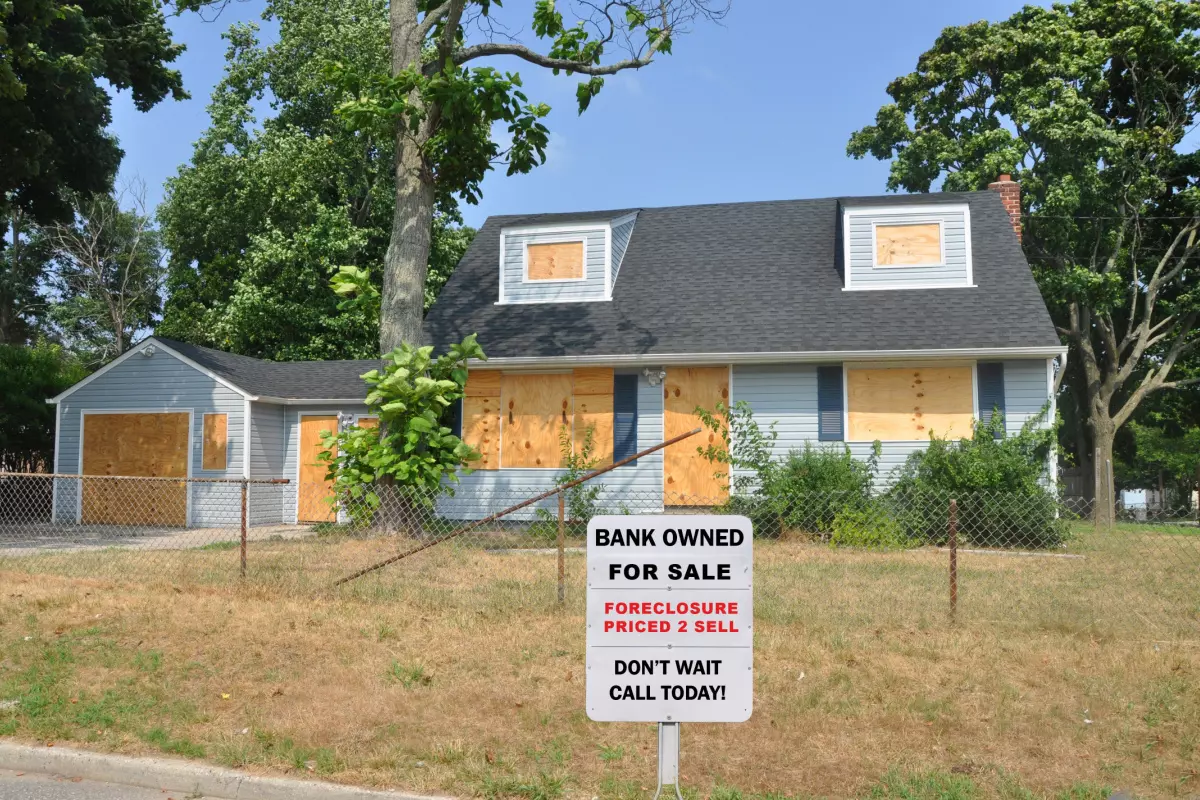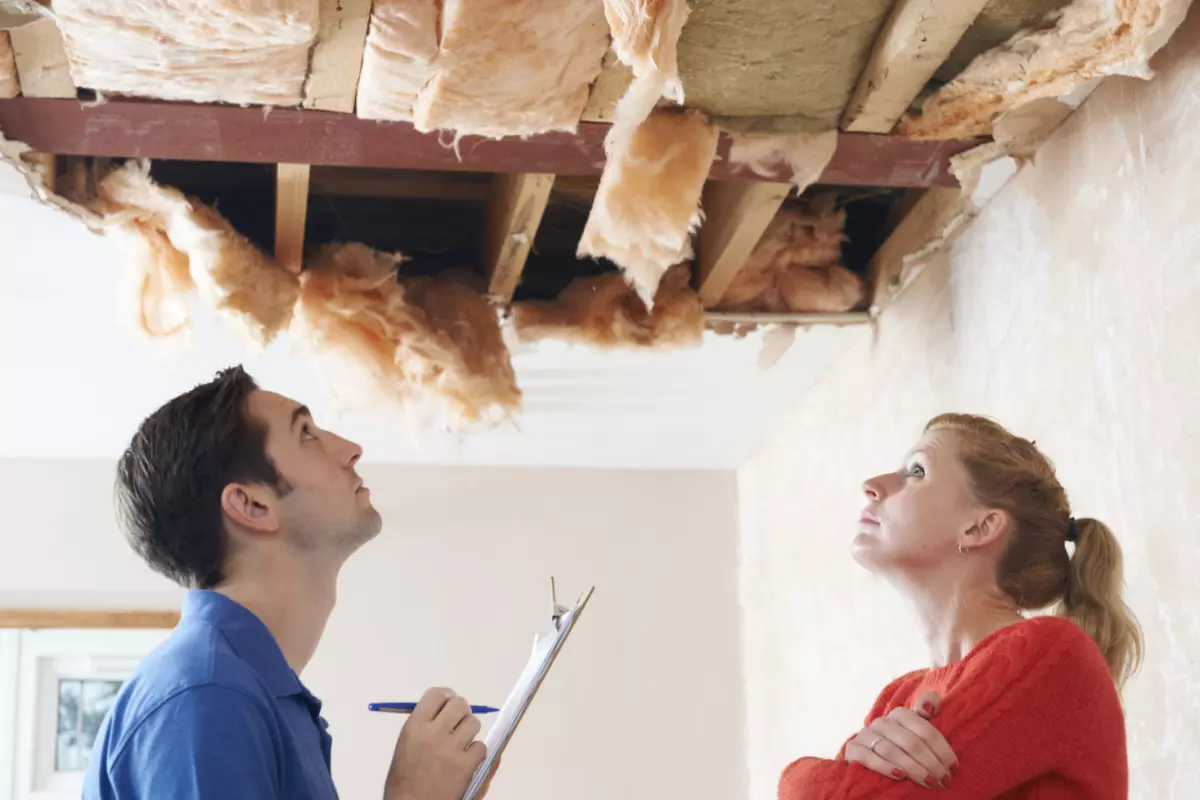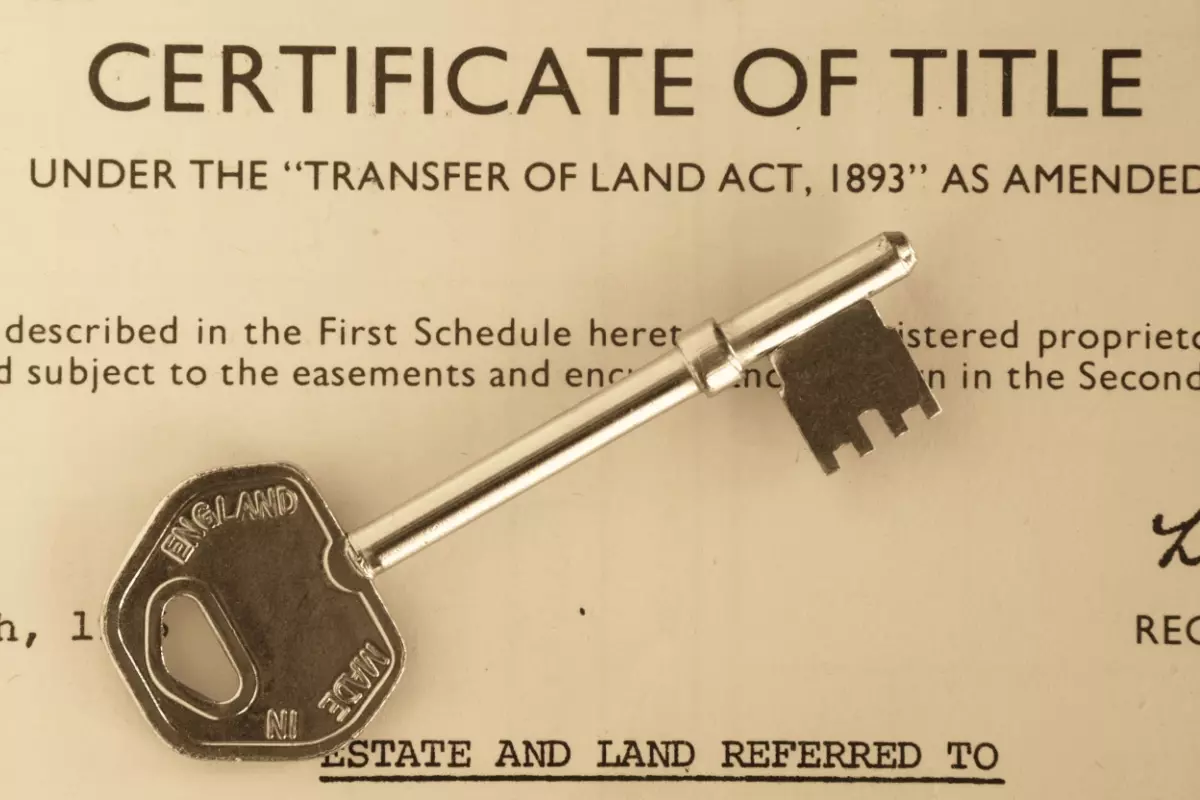What Makes Buying a Foreclosed Property Risky
Imagine finding a property for sale in your dream neighborhood, significantly lower-priced than others – a foreclosed home. These homes are often sold for less than market value because they are reclaimed by banks due to the previous owners’ inability to keep up with mortgage payments.
However, they can present unique challenges, such as unforeseen repair costs, legal issues, or property value misjudgments. This guide explores foreclosed properties, their appeal, potential risks, and practical tips for potential buyers.
Reasons for Foreclosures
What is a foreclosed home? Picture yourself walking into a domino setup. A slight touch sends a cascade of dominos tumbling, each piece triggering the next in a sequence of events. That’s how foreclosure often unfolds – a sequence of financial troubles that ultimately lead to homeowners relinquishing their properties.
Let’s unveil these domino pieces that often contribute to the final act of foreclosure.
- Job Loss: The first domino often falls with an unexpected job loss. Homeowners may find it more challenging to keep up with their mortgage payments without a stable income.
- Health Crises: Health issues can be another significant domino, often causing a double financial blow. As medical bills pile up, income may be reduced if the affected person can’t work.
- Divorce: When a marriage ends, the financial fallout can be substantial. After a divorce, keeping up with mortgage payments on a single income may become untenable, leading to foreclosure.
- Death: The death of a homeowner can also lead to foreclosure if the surviving family members cannot maintain the mortgage payments.
- Changes in Adjustable Interest Rates: Another reason homeowners might face foreclosure is a change in adjustable interest rates. Initially, homeowners might have had a low introductory rate that seemed manageable. However, if this rate increases and the homeowner’s income does not keep pace, they might struggle to meet their monthly payments. This can be a significant “domino” that leads to foreclosure.
- Excessive Debt: Often, foreclosure isn’t the result of an isolated financial challenge but rather an accumulation of them. A homeowner might have other significant debts, such as student loans, car payments, or credit card bills, in addition to their mortgage. These debts can result in missed payments and, eventually, foreclosure.
- Increased Property Taxes: Sometimes, local governments increase property taxes, which are often included in a homeowner’s monthly mortgage payment. An unexpected increase in property taxes can push a homeowner’s monthly payment beyond their ability to pay, resulting in foreclosure.
Foreclosure doesn’t happen overnight. It’s a process that can take months, even years, to unfold. When a homeowner consistently misses mortgage payments, the lender files a Notice of Default (NOD) after 90 to 120 days, initiating foreclosure.
During this pre-foreclosure stage, the homeowner can still negotiate or arrange a short sale to avoid foreclosure. If unresolved, the lender schedules a foreclosure sale, and if unsold, the property becomes real-estate-owned (REO), available for direct public purchase.
Why Are Foreclosed Properties Inexpensive?
Amidst the real estate market storm, a foreclosed property listed at a significantly lower price may be a guiding light. But are foreclosure homes cheaper?

Just as sailors learn to be wary of mirages, real estate enthusiasts know these low prices can often be deceiving. So, how does buying a foreclosure work, and what’s the story behind these appealing price tags?
Foreclosures Are Sold “As-Is”
In the real estate world, the term “as-is” can hide a multitude of risks. When a property is sold “as-is,” the bank or lender is selling the property in its current state, with no guarantees about its condition.
The bank is looking to recover its losses and sell the property quickly, so the home is often priced below market value. However, this reduced pricing reflects potential issues associated with the property.
The previous owners may have let the property fall into disrepair, necessitating significant repairs by the new owner to make the home livable. Thus, beneath the surface of an attractively priced foreclosure may lie a range of unseen issues that can cost a pretty penny to fix. These problems are not the bank’s responsibility but will become the new owner’s burden.
You Cannot Inspect a Foreclosed Property in Advance
One of the most significant risks when buying foreclosed homes lies in the inspection – or the lack thereof. Banks typically do not permit prospective buyers to thoroughly inspect the property before purchasing it.
The lower initial price of a foreclosed property often stems from the inability to identify potential issues pre-purchase, which can turn a bargain into a costly endeavor. As a result, buying a foreclosed property can lead to paying more in the long run, potentially offsetting any savings from the low listing price.
Common issues in foreclosed homes may include the following:
- Plumbing Problems: Neglected homes often have plumbing issues, which can cause extensive water damage.
- Electrical System Issues: Aging or neglected electrical systems can degrade and pose fire hazards.
- HVAC Disrepair: HVAC systems require regular maintenance, which is often overlooked in foreclosed homes, leading to potential failures or costly repairs.
- Roof and Gutter Damage: Poorly maintained roofs and gutters can cause leaks and water damage.
- Pest Infestations: Vacant homes can harbor pests, causing significant hidden structural damage.
- Mold Growth: Unresolved water leaks or high humidity can lead to mold growth, posing health hazards and causing damage to the home.
- Structural Damage: Neglect, natural disasters, or vandalism can cause unnoticed structural damage, leading to high repair costs.
The Property May Need Work
When a home enters foreclosure, it often implies the property may have been neglected in the final months of previous ownership. Lack of maintenance and potential damage of earlier owners means that your inexpensive purchase may require significant work.

From repairing broken windows and patching up walls to more substantial undertakings like replacing HVAC systems or fixing structural damage, these costs can pile up, deflating the allure of the initially low purchase price.
The Property May Have Been Vacant for Years
A foreclosed property may have been vacant for months or years before it finally reaches the market. During this time, a house left untended can develop a host of issues. Pests may find a home, plumbing might deteriorate, and mildew could creep into corners.
Moreover, the vacant property may also attract unwanted attention. Break-ins or squatters are not uncommon in foreclosed homes, leading to potential legal complications and additional costs for future owners.
Investors May Get Stuck With Liens
When buying foreclosed homes, you might unknowingly inherit the previous owner’s unpaid debts or liens, including property taxes or construction liens, which could inflate your investment cost. These liens are attached to the property, not the individual.
As a result, they can pass the new owner after a foreclosure sale. They may remain hidden as they’re not linked to the bank foreclosing the home. If you buy a foreclosed home with a lien, you’re responsible for it, making title searches crucial to uncover any outstanding debts before purchasing.
How to Avoid the Dangers When Buying Foreclosures
Like a veteran sailor navigating treacherous waters, buying a foreclosure requires skill, knowledge, and a dose of caution. Let’s chart the course together, highlighting key strategies to steer clear of pitfalls associated with buying foreclosed homes.
Be Aware of Local Lien Laws
To navigate foreclosure buying effectively, one must clearly understand liens, as there is a risk of inheriting unpaid debts from the previous owner. Local lien laws, which dictate your obligations and rights as a buyer, vary significantly. The property may carry different types of liens, like tax liens, mechanic’s liens, or judgment liens.
A thorough title search can reveal these liens before purchase, though securing legal advice is recommended to avoid errors. Discovering a lien prompts a reassessment of the property’s overall cost and potential legal complexities to decide if the purchase remains financially viable.
Conduct a Title Search
Before you commit to buying a foreclosed property, you should conduct a title search. A title search will reveal if there are any outstanding liens or debts attached to the property, which could become your responsibility upon purchase.

This process involves examining public records to verify the legal ownership of the property and ensure there are no other claims against it. Hiring a professional title company or attorney to conduct this search can help ensure accuracy and protect your investment.
Do Not Overpay
While foreclosed properties may appear to be bargain opportunities, avoid falling into the trap of overpaying. A property’s true value isn’t solely its listing price; it’s a composite of various factors, including the cost of any necessary repairs and the value of similar homes in the area.
Determining the cost of needed repairs can be challenging, given that thorough inspections are often not permitted for foreclosed properties. However, you can take several steps to gain insight into the potential repair costs:
- Exterior Evaluation: Even if you can’t tour the interior, you can evaluate the exterior. Look for signs of neglect, such as overgrown vegetation, broken windows, or roof damage.
- Professional Opinion: Enlist the help of professionals such as contractors or home repair experts. While they might not be able to conduct a complete inspection, their expert eyes can provide an estimated cost based on observable conditions and common issues in similar homes.
- Neighborhood Research: Investigate the condition of other properties in the neighborhood. If many homes are in disrepair, it could suggest similar issues with the foreclosed property.
- Contingency Budget: Always factor in a contingency home improvement budget for unforeseen repairs. This buffer can protect you from unexpected costs that push the property out of your financial comfort zone. It’s recommended to set aside 10% to 20% of the property’s purchase price as a buffer against sudden expenses.
This strategic approach can provide a more accurate property valuation, guiding you to make a well-informed offer and ensuring that what seems like a ‘great deal’ doesn’t become a financial burden. However, if the damage is too severe, requiring the property to be torn down and rebuilt, there are also ways to save money when building a house.
Familiarize Yourself With the Purchasing Process
Embarking on the journey of buying a foreclosure without understanding the purchasing process can be a daunting venture. Knowledge is your compass, providing direction and clarity amidst the complexities of the foreclosure buying process. Here’s a brief rundown of the typical steps involved:
- Identifying Potential Properties: Identify foreclosed properties that meet your investment criteria. You can find them through real estate agents, bank listings, county and legal newspapers, or online foreclosure sales platforms.
- Preliminary Research: Conduct an initial assessment of the property. This can include driving by the property, researching its market value, conducting a title search, checking for liens, and gauging the neighborhood.
- Securing Financing: Secure pre-approved financing to demonstrate your purchasing capability and strengthen your position, particularly in auction scenarios.
- Attending Auctions or Submitting Offers: Depending on how the property is sold, you might need to attend a public auction or submit an offer directly to the bank or lender.
- Negotiating with the Bank: If the property doesn’t sell at auction, it becomes the bank’s real estate (REO). At this point, you might be able to negotiate terms directly with the bank.
- Inspections and Appraisals: If your offer is accepted, you should have the property professionally inspected and appraised. These steps may be challenging, as access to the property may be limited.
- Finalizing the Purchase: The purchase can be finalized once all contingencies are satisfied. This typically involves signing paperwork, paying closing costs, and securing the title.
Find a Real Estate Agent Who Specializes in Foreclosures
In the intricate world of foreclosure buying, having a real estate agent with specialized experience in foreclosures is invaluable. Their expertise and insights are akin to a reliable co-pilot, helping you navigate complex terrains.

An adept foreclosure-specialized real estate agent can offer the following benefits:
- Navigating the Purchase Process: They understand the steps and timelines involved in purchasing a foreclosed home, from identifying potential investments to closing the deal.
- Negotiating with Banks: Banks can be tough negotiators, but seasoned agents can leverage their experience and industry knowledge to negotiate more favorable terms for you.
- Assessing Property Value: An experienced agent can provide you with an accurate estimation of the property’s worth, considering its condition, location, and market trends. This can ensure you pay the appropriate amount.
- Identifying Potential Issues: A well-informed agent can spot red flags that could indicate potential problems, such as liens, damage, or legal issues, saving you from future complications.
- Assisting with Documentation: Buying a foreclosed home involves a lot of paperwork, some of which can be confusing. An agent can help you understand and manage this documentation effectively.
Secure Financing
Financing a foreclosed property can be challenging due to potential repair costs and the property’s condition. Plus, purchasing at an auction often requires cash payment.
Conventional bank loans are feasible for foreclosures in good condition, with the potential benefits of lower interest rates and varied repayment terms. However, they may not be suitable for homes needing extensive repairs since lenders usually require the property to be livable upon closing.
FHA 203(k) loans are designed for properties requiring significant repairs. This loan combines the purchase price and repair costs into one loan. These loans often come with relatively low-interest rates, ranging from 3% to 5%. However, FHA 203(k) loans have a minimum credit score requirement between 500 and 620. Finally, also consider the extensiveness of the repairs – all renovations must be completed within six months when using the funds from an FHA 203(k) loan.
Hard money loans are short-term loans from private investors or companies. They may offer quicker decisions and more flexibility. The loan amount is typically based on the after-repair value (ARV) of the property. However, these loans often have higher interest rates and shorter repayment terms and require a significant down payment.
Consult a lending professional before understanding these options and finding one that aligns with your situation. Furthermore, secure your financing early. Get your loan pre-approved before beginning property hunting. This step helps establish a budget and positions you as a serious buyer, which is advantageous when dealing with bank-owned foreclosures.
Sum Up
Navigating the world of foreclosed homes can be challenging, with hidden costs and complexities. While these properties might seem like deals, you must understand the potential pitfalls and strategies to protect your investment.
With diligent preparation, buying a foreclosed property can be a rewarding endeavor. Make sure you understand the process of buying a foreclosed home, secure early financing, and conduct necessary title and lien searches. Finally, don’t hesitate to secure the help of an experienced real estate agent to guide you through the process.
Table of Contents
- Reasons for Foreclosures
- Why Are Foreclosed Properties Inexpensive?
- Foreclosures Are Sold “As-Is”
- You Cannot Inspect a Foreclosed Property in Advance
- The Property May Need Work
- The Property May Have Been Vacant for Years
- Investors May Get Stuck With Liens
- How to Avoid the Dangers When Buying Foreclosures
- Be Aware of Local Lien Laws
- Conduct a Title Search
- Do Not Overpay
- Familiarize Yourself With the Purchasing Process
- Find a Real Estate Agent Who Specializes in Foreclosures
- Secure Financing
- Sum Up